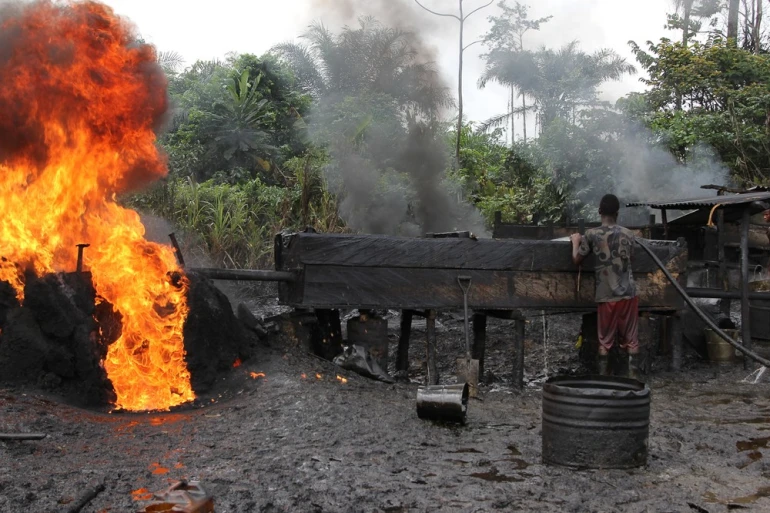Experts Warn of Polio and Measles Comeback Due to Funding Cuts

As the world commemorates International Nurses Day 2025, the World Health Organisation (WHO) reports that 42% of nurses in Africa intend to emigrate, potentially devastating already fragile health systems. The WHO's Acting Regional Director for Africa, Chikwe Ihekweazu, emphasizes the critical need for increased support and investment in the nursing profession, aligning with this year's theme: “Our Nurses. Our Future. Caring for Nurses Strengthens Health Systems and Economies.” The allure of better pay, safer working conditions, and clearer career progression in wealthier nations is driving this alarming trend, impacting healthcare access and equity.
Nigeria, Africa's most populous country, is particularly affected by this workforce crisis. Between 2021 and 2023, over 15,000 Nigerian nurses sought verification to work abroad, as revealed by the Nursing and Midwifery Council of Nigeria (NMCN). Consequently, hospitals nationwide are struggling with staff shortages, resulting in longer patient wait times and diminished care quality. The WHO's 2025 State of the World’s Nursing Report indicates a global nursing workforce of 29.8 million, up from 28 million in 2018, with nearly 80% serving only 49% of the world's population. In Africa, nurses constitute almost 70% of the health workforce, yet the region suffers from one of the lowest nurse-to-population ratios globally, standing at 14.1 nurses per 100,000 people, significantly behind high-income countries. By 2030, nurses are projected to account for 66% of the region's 6.1 million health worker shortfall.
Mr. Ihekweazu highlights that while 43% of the nursing workforce is under 35, many lack mentorship and career development opportunities. High-income countries actively recruit from lower-income nations, with foreign-born nurses comprising nearly a quarter of the workforce in some cases. Recognizing that women constitute 85% of nurses but face a 7% pay gap and limited leadership roles, the WHO urges governments to expand education and training, strengthen regulation, create advanced practice roles, improve compensation and mental health support, and invest in leadership.
Parallel to the nursing crisis, health experts warn of a potential resurgence of polio and measles in Kenya due to inadequate funding for immunization programs. Decades of progress risk being reversed if the government does not replace dwindling donor support. Prof. Ruth Nduati, a pediatrician, stresses that only vaccination can protect children from the lifelong disabilities caused by polio. Historically, polio and measles inflicted devastating consequences, but the introduction of polio vaccines in the late 1970s and 1980s significantly reduced the disease's prevalence.
Rotary International launched the Global Polio Eradication Initiative (GPEI) in 1988 with partners including the WHO, UNICEF, and the CDC, later joined by the Bill & Melinda Gates Foundation and Gavi, the Vaccine Alliance. Unless the Kenyan government intervenes to sustain immunization coverage, the country could undo decades of progress. Kenya's routine childhood vaccinations are administered under the Expanded Programme on Immunization (EPI), largely supported by donors. However, this support is slated to end by 2029, with potential vaccine supply disruptions due to Kenya's failure to co-finance Sh1.6 billion for the 2025 fiscal year.
UNICEF reports that one in seven children globally are zero-dose, meaning they have not received a single vaccine. In Kenya, approximately 48,000 children annually are zero-dose, predominantly in marginalized communities. The goal is to reduce this number by 25% by 2025 and 50% by 2030 through targeted outreach. UNICEF Kenya’s Chief of Health, Luigi D’Aquino, notes efforts to enhance vaccine supply and logistics in underserved areas. Half of zero-dose children are concentrated in 14 counties, including Nairobi and Mombasa, where urban informal settlements contribute significantly to the problem. Furthermore, 60% of refugee children from neighboring countries have never been vaccinated.
The introduction of rotavirus vaccines has reduced cases of diarrhea and deaths in newborns. Prof. Nduati emphasizes that vaccination and breastfeeding are critical for newborn and child survival, advocating for local vaccine manufacturing to ensure a stable supply. She urges prioritization of vaccination and government investment in vaccine production capacity, drawing parallels with India's successful vaccine manufacturing industry. Despite growing concerns, the Kenyan government has not yet commented on the vaccine supply issue.









